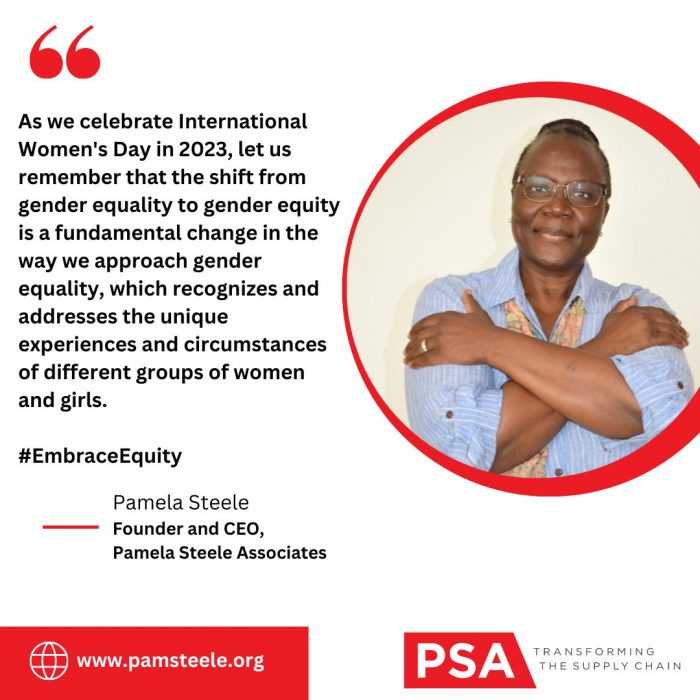Beyond Equality: Why shifting to gender equity is crucial for women’s progress in a changing world
 This year’s theme for International Women’s Day, which is celebrated globally every 8th March, is an exciting one! Why? Because it calls for us to not only advocate for the equality of women and girls, but to go beyond in building a more inclusive world for generations to come. As we recognize the social, economic, cultural and political achievements of women on this International Women’s Day, the theme for this year, “From Equality to Equity: Advancing Women and Girls in a Changing World,” urges us to shift our focus from gender equality to gender equity and how we can embrace this shift to advance the rights of women and girls everwhere.
This year’s theme for International Women’s Day, which is celebrated globally every 8th March, is an exciting one! Why? Because it calls for us to not only advocate for the equality of women and girls, but to go beyond in building a more inclusive world for generations to come. As we recognize the social, economic, cultural and political achievements of women on this International Women’s Day, the theme for this year, “From Equality to Equity: Advancing Women and Girls in a Changing World,” urges us to shift our focus from gender equality to gender equity and how we can embrace this shift to advance the rights of women and girls everwhere.
Gender equality refers to the idea that all people, regardless of their gender, should have the same rights and opportunities in life. It is the notion of treating everyone equally without discriminating against them based on their gender. However, gender equity takes this idea one step further. Gender equity is about creating an environment in which everyone has access to the same opportunities, resources and outcomes, regardless of their gender. It recognizes that people have different needs and circumstances, and aims to provide fair and just solutions that address these differences.
The shift from gender equality to gender equity is essential for advancing equality for women and girls. It is an acknowledgment that there are systemic barriers that prevent women and girls from achieving their full potential. These barriers are often rooted in cultural, social and economic structures that perpetuate gender-based discrimination and inequality. By shifting our focus to gender equity, we can address these barriers and create a more inclusive and just society.
To embrace the complexity of this shift, we need to understand that gender equity is not a one-size-fits-all solution. It requires a nuanced and intersectional approach that takes into account the unique experiences and circumstances of different groups of women and girls. For example, women of color, indigenous women, and women with disabilities face additional barriers that need to be addressed to achieve gender equity. We need to listen to their voices, experiences and perspectives to ensure that our efforts to advance gender equity are inclusive and effective.
To advance gender equity, we need everyone to be involved. Governments, civil society organizations, the private sector, and individuals all have a role to play. Governments can create policies and legislation that promote gender equity and hold institutions accountable for achieving it. Civil society organizations can advocate for the rights of women and girls and provide support services to those who need it. The private sector can create inclusive workplaces and supply chains that promote gender equity. Individuals can challenge gender-based discrimination and stereotypes in their personal and professional lives.
As we celebrate International Women’s Day in 2023, let us remember that the shift from gender equality to gender equity a fundamental change in the way we approach gender equality, which recognizes and addresses the unique experiences and circumstances of different groups of women and girls. Let us embrace the complexity of this shift and work together to advance gender equity. We all have a role to play in creating a more just and equal world for women and girls.
Let’s all fully #EmbraceEquity.